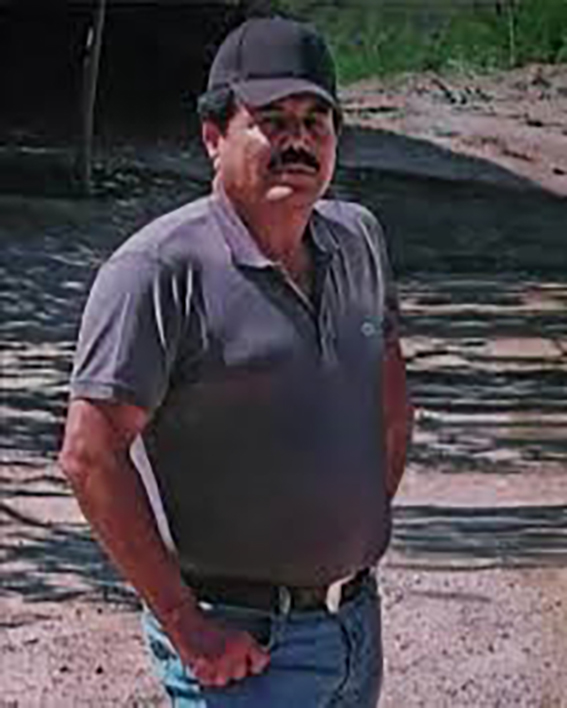NEW YORK, (Reuters) – Ismael “El Mayo” Zambada, the notorious alleged co-founder of the Sinaloa Cartel, pleaded not guilty to U.S. drug charges yesterday after he and a son of a Mexican drug lord were arrested in Texas in a dramatic achievement for U.S. law enforcement that could usher in a seismic shift to Mexico’s criminal landscape.
Court records showed that Zambada directed that a not guilty plea be entered on his behalf, which was accepted by U.S. Magistrate Judge Anne Berton.
At an initial court appearance in a Texas courtroom yesterday, Zambada, who is believed to be in his 70s and was in a wheelchair, was read his rights and charges, according to a transcript.
He waived his right to be present at an arraignment next Wednesday. He will be required to appear in person at a status conference next Thursday before U.S. District Judge Kathleen Cardone, who will oversee the rest of the case, the records show.
Zambada’s lawyer did not immediately respond to requests for comment.
Zambada is accused of being one of the most consequential traffickers in Mexico’s history, having co-founded the Sinaloa Cartel with Joaquin “El Chapo” Guzman. El Chapo was extradited to the U.S. in 2017 and is serving a life sentence in a maximum security prison.
Both Zambada and Joaquin Guzman Lopez, a son of El Chapo, face multiple charges in the United States for funneling huge quantities of fentanyl and other drugs to U.S. streets. Fentanyl overdoses have surged to become the leading cause of death for Americans between the ages of 18 and 45.
Guzman Lopez, who is in his 30s, is due to appear in court in Chicago next week, according to a U.S. official.
The two were detained after landing in a private plane in the El Paso area on Thursday.
Reuters was the first news organization to report the story, ahead of a Justice Department statement on Thursday evening which confirmed the two men were detained in El Paso.
Yesterday, U.S. President Joe Biden heralded the arrests and vowed to continue combating drug trafficking.
“Too many of our citizens have lost their lives to the scourge of fentanyl. Too many families have been broken and are suffering because of this destructive drug,” he said in a statement.
Guzman Lopez lured Zambada to the U.S., according to three current and former U.S. officials familiar with the operation who sought anonymity to speak candidly about the events.
U.S. authorities have made drug bosses key targets, frequently striking plea bargain deals with them in exchange for information that leads to the capture of other high-ranking cartel figures.
Reuters could not immediately confirm a plea bargain deal had been struck.
Zambada and El Chapo’s sons have had a fractious relationship since their father was extradited in 2017, and the arrests of Zambada and Guzman Lopez may trigger instability or even violence in their heartlands in the northern state of Sinaloa.
Mexico’s defense ministry yesterday said it had sent 200 special forces soldiers to Sinaloa to enhance security.
A bloody inter-cartel war erupted in 2008 when another senior Sinaloa leader was detained. His family members accused El Chapo of orchestrating the arrest with Mexican authorities, triggering a violent fissure between two powerful factions of the crime group.
Guzman Lopez is one of four sons of El Chapo – known as Los Chapitos, or Little Chapos – who inherited their father’s faction of the cartel. His brother, Ovidio Guzman Lopez, was arrested last year and extradited to the U.S.
Rumors on social media had circulated that Ovidio Guzman had been released, but the U.S. ambassador to Mexico, Ken Salazar, said in a statement that he “remains in custody in the United States.”
In recent years, the Sinaloa cartel has become the biggest target for U.S. authorities, who have accused the crime syndicate of being the biggest supplier of fentanyl to the U.S.
The Sinaloa cartel traffics drugs to more than 50 countries around the globe and is one of the two most powerful organized crime groups in Mexico, according to U.S. authorities.
Zambada and El Chapo’s sons belong to two different generations of traffickers, with differing styles.
Zambada is known for being an “old-school” narco, avoiding the limelight and operating in the shadows. El Chapo’s sons, by contrast, have a reputation for being flashy narcos who courted attention as they ascended the ranks of the cartel.
El Chapo’s sons are also known to be more violent and hot-headed than Zambada, who had a reputation as a shrewd operator.
The Texas charges to which Zambada pleaded not guilty included continuing criminal enterprise, narcotics importation conspiracy, and money laundering.
The indictment, filed in April 2012, alleges that cartel members under the leadership of Zambada and El Chapo kidnapped a Texas resident in 2009 to answer for the loss of a seized marijuana shipment, and kidnapped a U.S. citizen and two members of his family in 2010.
Both victims were murdered, and their bodies were discovered in Juarez, Mexico, prosecutors said.
Mexican Security Minister Rosa Rodriguez said that Mexico was informed of the detentions by the U.S. government, but that Mexican authorities did not participate in the operation.
She also said that it was unclear whether the two men were captured or surrendered themselves to U.S. authorities.
“The Mexican government did not participate in this detention or surrender,” Rodriguez said at a press conference.










